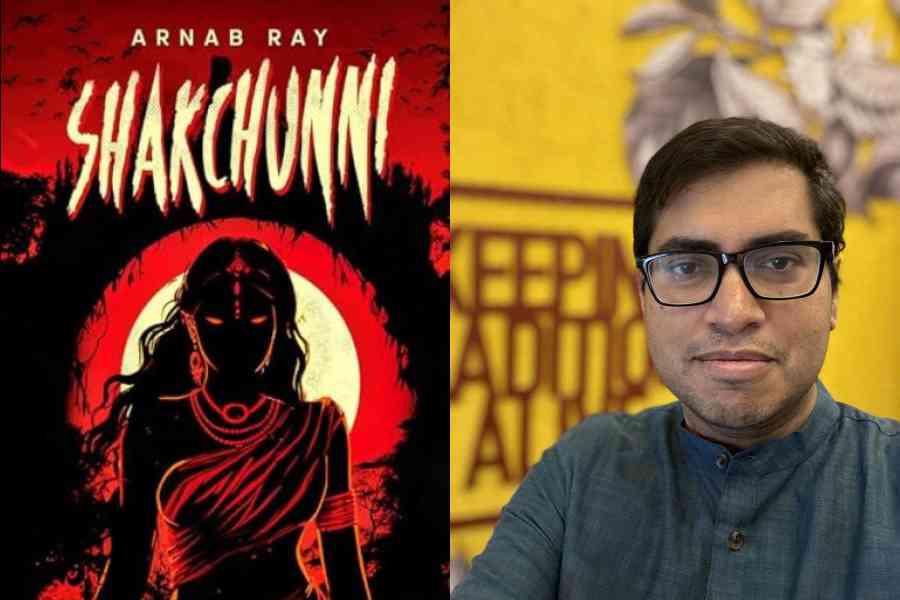Arnab Ray, who is the writer of the Hotstar series Sultan of Delhi and Mahabharat Murders on Hoichoi, spoke to us about his new novel, Shakchunni. The author, who is known for his fresh perspectives in fictional writing, was brought up in Calcutta and is now settled in the US. Shakchunni features a refreshing take on the Bengali folklore.
A t2 chat.
Tell us about Shakchunni and the story behind such a catchy title.
Shakchunni, as we all know, is a character from Bengali children’s fiction. The first time we all probably heard Shakchunni was while reading Thakumar Jhuli. What happened is when my daughter and I were watching an animated story based on Shakchunni and after that she asked me, “Bubu (as she calls me), were you scared?” I agreed with her because that very cartoonish video had exposed me to an aspect in the story that I did not know or notice when I first heard it as a child 30 years ago. That inspired me to write this book which took me a while to write.
Shakchunni is a very different take on the legendary folklore. My book is set in the time of the great famine in Bengal where a family of zamindars get involved in a contraband rice trade. They hoarded grain and the price of grain became as much as the price of gold. So they sold grain at the price of gold. Then the son of the family comes back from England and is married to a village girl. Uncanny events follow and the rest is for the readers to unveil. It is classic horror along with some metaphorical tones of real horrors.
Writing is not your full-time profession. Could you elucidate on your work life?
I am a Calcutta kid, went to South Point School, then Jadavpur University. After graduation, I moved to the US to pursue Masters and PhD in computer science. Presently, I specialise in cyber security and the intersection between hacking and consequences of the same in healthcare. I have also written books on cybersecurity.
Tell us the story behind your intense writing style. Since when have you been writing?
While growing up, I was always a little bit of a misfit. For instance, I was more into Hindi movies and songs despite being a Bengali boy. The first book I wrote was May I Hebb Your Attention Pliss, which was inspired by Hindi films and is also my most successful book till date. My love for pulpy crime and Hindi horror was my rebellion towards being typically Bengali and being brought up with Tagore and traditions. Even when I realised my interest in computer science, the career I chose was to deal with the crime-related area, more thrilling side of the subject. Doing simple things never gets me out of bed, I always need a sense of adversary and threat. I don’t know why I am like that but it keeps me going.
My first writing escapade actually happened with The Telegraph. Several years ago when I was a college student, The Telegraph used to organise writing competitions where I participated and won the second prize. The prize back then was enormous! I won tickets to Jaipur and was able to take my parents there in the first year of college! Of course, I was writing before as well but that was the first time my work was validated.
Can readers expect more Western stories from you since you have completed over two decades in the US now?
The paradox is that even though I have been in the US for so long, I never fit in where I am. I keep my head in India. I watch and tweet about IPL as they happen. I am also updated with current affairs and also write regularly about them. The two things that interest me in the US are Hollywood and US politics but I used to follow them even when I was in India. I don’t think I can ever be quintessentially Western. Even my second book, The Mind, is the most universal it can get. I can write non-fiction with respect to Western practices like I have in my books about cybersecurity. Emotionally, I feel Indian and Bengali, which is why my non-fiction can never be Westernised.











